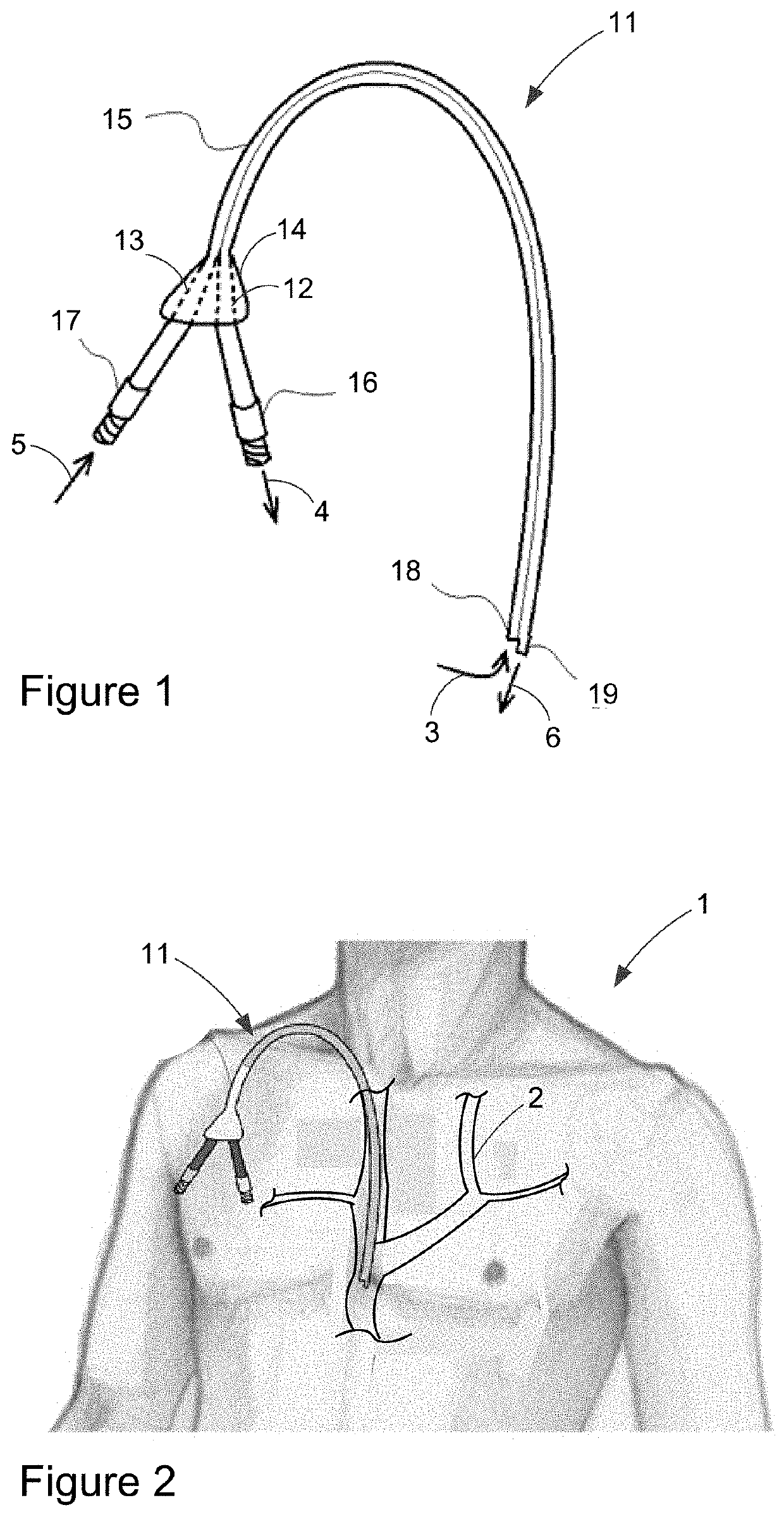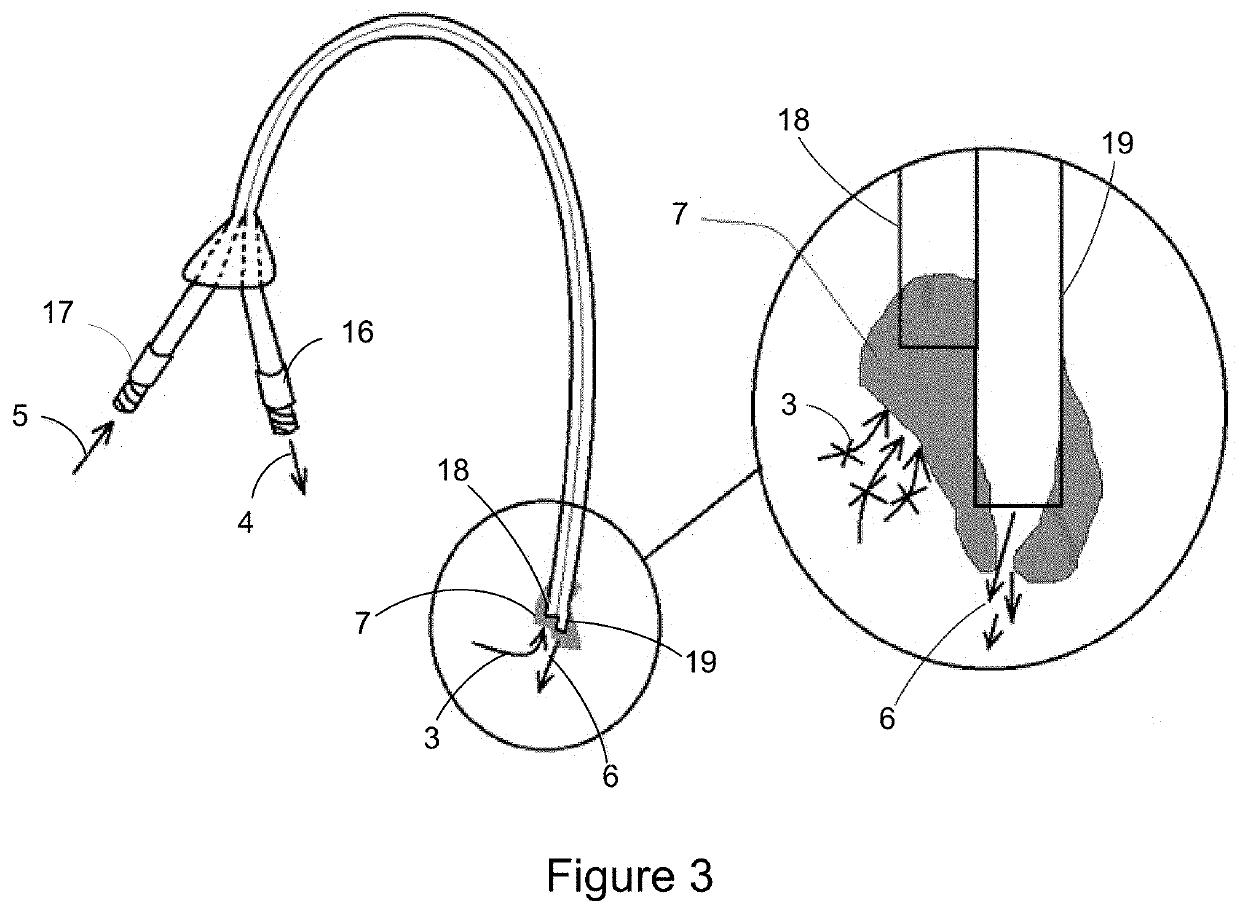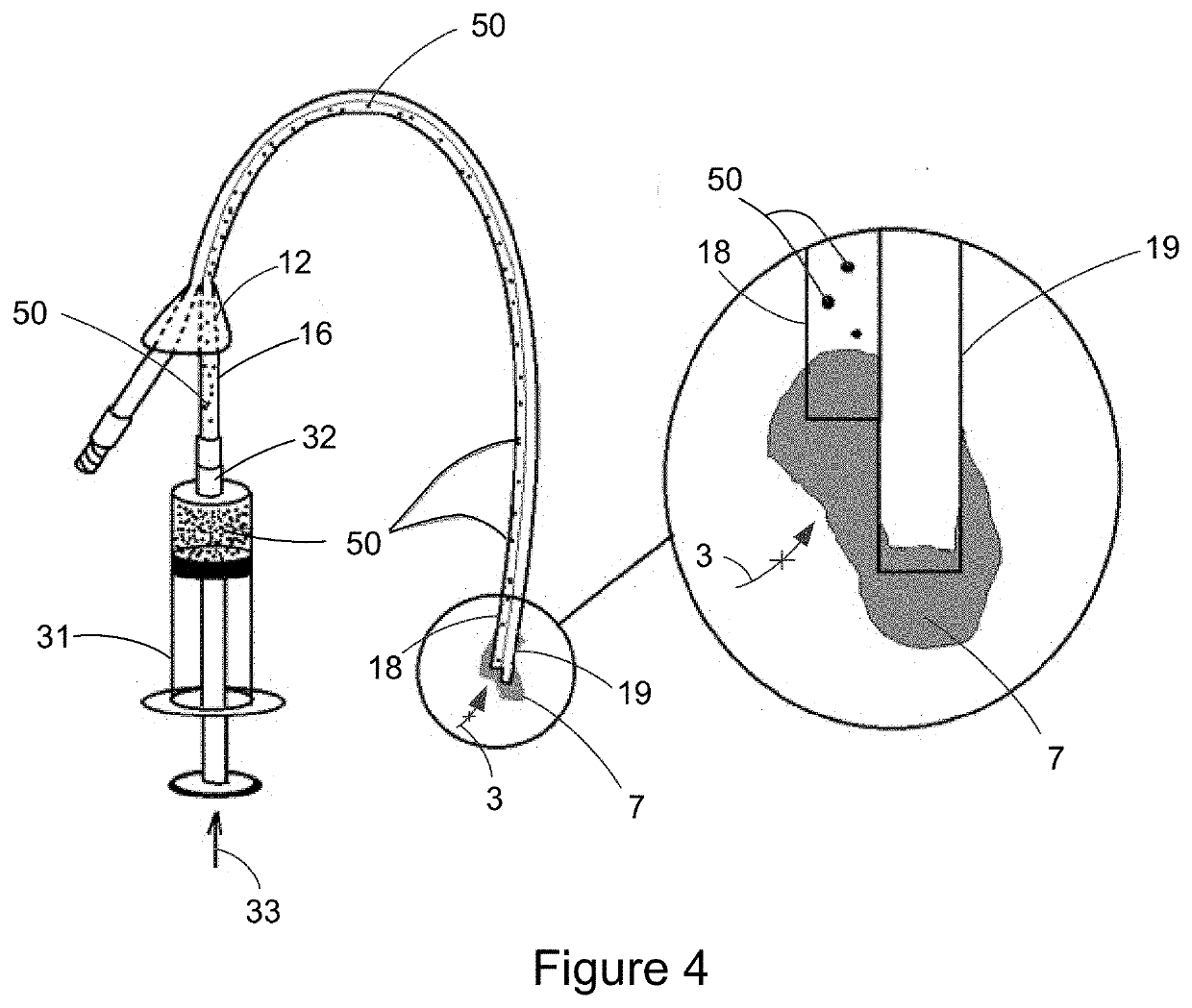Catheter Clearance Device and Method of Use
a catheter and catheter technology, applied in the direction of catheters, process and machine control, instruments, etc., can solve the problems of high infection rate, catheters are known not to be efficient long-term dialysis, and catheters have very short patency rates
- Summary
- Abstract
- Description
- Claims
- Application Information
AI Technical Summary
Benefits of technology
Problems solved by technology
Method used
Image
Examples
Embodiment Construction
[0031]Hemodialysis patients require routine large volume blood exchange to survive and our bodies fight off efforts to allow this access. For many dialysis patients a permanent, indwelling catheter is the means of providing such access. Dialysis catheters have advantages over other methods of access however also have a limited time in which they will stay open and function mainly because of fibrin and clot forming on the tip. This invention and the method of use describe a means to direct a drug, a thrombolytic, directly at the point needed for a specific duration for dialysis catheters which are made in specific standard sizes.
[0032]FIG. 1 illustrates a standard dialysis catheter 11 consisting of an aspiration tube 12, an injection tube 13 held together by a cuff 14 and a catheter 15. The aspiration tube 12 is attached to an aspiration port 16 on one end, and a distal tip on the other end 18. The injection tube 13 is attached to an injection port 17 on one end, and a distal tip on ...
PUM
 Login to View More
Login to View More Abstract
Description
Claims
Application Information
 Login to View More
Login to View More - R&D
- Intellectual Property
- Life Sciences
- Materials
- Tech Scout
- Unparalleled Data Quality
- Higher Quality Content
- 60% Fewer Hallucinations
Browse by: Latest US Patents, China's latest patents, Technical Efficacy Thesaurus, Application Domain, Technology Topic, Popular Technical Reports.
© 2025 PatSnap. All rights reserved.Legal|Privacy policy|Modern Slavery Act Transparency Statement|Sitemap|About US| Contact US: help@patsnap.com



